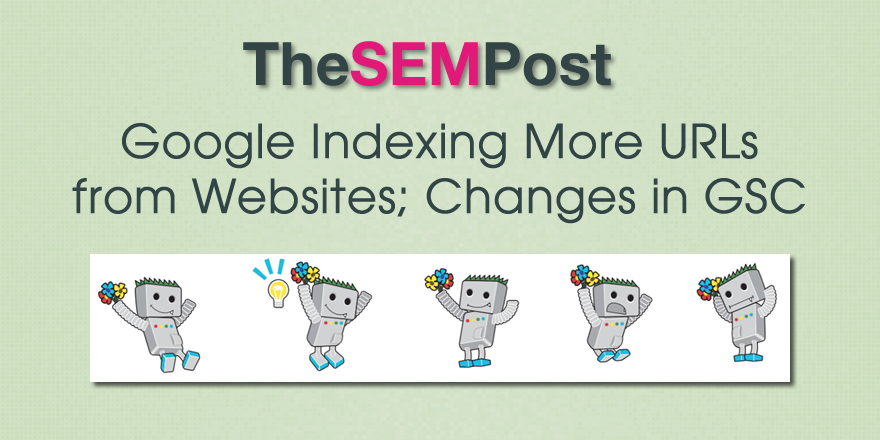 Have you notice an uptick in the number of URLs that Google is reporting as indexed in Google Search Console? Well, there is a good reason for that. Google is now indexing more URLs.
Have you notice an uptick in the number of URLs that Google is reporting as indexed in Google Search Console? Well, there is a good reason for that. Google is now indexing more URLs.
Glenn Gabe was the first to notice the huge increase in URLs, which seemed to start on July 26th. One site of his saw a jump of 10 million pages, which is a pretty significant increase, even for huge sites. While he initially wondered if it was a bug, as we had seen another indexing bug recently in Google Search Console, but Google’s Gary Illyes confirmed it is a standard change on Google’s end with their indexing.
@glenngabe looks it's a standard change on our end to the better: we can now index even more URLs everywhere, globally! (no I won't say a #)
— Gary Illyes (@methode) July 31, 2015
@aleyda it's possible previously unselected docs are now selected, hence the uptick in that case @glenngabe
— Gary Illyes (@methode) July 31, 2015
This is good news for webmasters with larger sites who weren’t seeing their entire site indexed previously. And while Illyes isn’t revealing the numbers, when we see some websites are gaining 10 million indexed pages, it is a pretty significant change.
The changes will be reflected on your “Index Status” page within the “Google Index” section of Google Search Console. If your site sees changes, it will be shown with the 7/26/15 date on the chart. Since this is appears to be a change to the fundamental way Google decides the pages to index, webmasters should continue to see their indexed page numbers continue to grow.
That said, just because they are indexed doesn’t necessarily mean they will rank. But it means that SEOs can also optimize those pages once they are indexed.
Illyes also confirmed that it is not a failure of Google removing duplicated content.
@pip_net no @aleyda @glenngabe
— Gary Illyes (@methode) July 31, 2015
Lastly, when Gabe was questioning exactly what changes Google made and whether it was related to indexing dynamically generated URLs.
@glenngabe nope. If I want to oversimplify it, it's basically we got 2 or 3 more hard disks
— Gary Illyes (@methode) July 31, 2015
This is a great change for SEOs, especially those with larger sites that may have had issues with getting all the pages within the site indexed previously.
Jennifer Slegg
Latest posts by Jennifer Slegg (see all)
- 2022 Update for Google Quality Rater Guidelines – Big YMYL Updates - August 1, 2022
- Google Quality Rater Guidelines: The Low Quality 2021 Update - October 19, 2021
- Rethinking Affiliate Sites With Google’s Product Review Update - April 23, 2021
- New Google Quality Rater Guidelines, Update Adds Emphasis on Needs Met - October 16, 2020
- Google Updates Experiment Statistics for Quality Raters - October 6, 2020